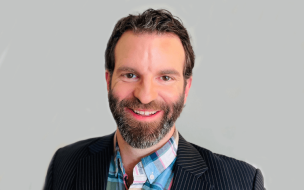From artificial intelligence to virtual reality, technology has had an important effect on the jobs that are available, but it has also shaped how these jobs are done and what qualities professionals need to achieve success.
Clare Kelliher is a professor of Work and Organization at Cranfield School of Management. She has a PhD in Organizational Behavior and is co-editor of the book, Work, Working and Work Relationships in a Changing World.
We caught up with Clare who told us five ways MBA candidates need to adapt to the changing world of work.
1. Develop your soft skills
The ability to work in a team, with a wide variety of people, and to build a network of people, are some of the most important skills sought by employers today, according to the Financial Times 2018 Skills Gap Survey.
These are soft skills. Today, instead of professionals undertaking roles that can easily be taken over by various technological means, they’ll be more likely to lean towards jobs which emphasis judgement, social skills, empathy, and rapport, says Clare.
These soft skills—like teamwork and communication—are becoming ever more important.
2. Seek Impact
“People are less satisfied with simply turning up to work and doing a job for money that they spend in their non-work lives,” says Clare.
People are searching for a meaning associated with their work. Companies are also driving this shift towards values-focused roles, expecting professionals to contribute beyond their standard job requirements.
3. Think globally
Today’s professionals communicate across continents, time-zones, and cultures. While globalization is already here, Clare says a key workplace challenge is global integration. Real-time communication, she says, hasn’t quite been mastered yet.
The input from a professional on the West Coast of the US having a conference call with someone in Europe, who has just come into the office, and an individual in Asia, who is staying up late to participate, won’t be the same.
“Will the person who’s had to get up early be in the same mindset as those in their normal working day?” questions Clare.
Increasingly, MBA professionals need to consider how to gain maximum quality from each individual involved in their organization, wherever they’re based.
4. Think of others
A changing world of work isn’t just about you, but about the people you employ and interact with.
Managers will need to think more deeply about responding to their employee’s needs. This stretches beyond those with traditional caring responsibilities, like childcare, and include those with eldercare responsibilities and non-workplace, social commitments.
“The traditional model of employment has been reshaped,” Clare explains. “We need to think: What does it mean if we’re employing people who are self-employed or on zero hour contracts?
“How do we respond if we’re employing people who are outside traditional caring responsibilities?”
5. Develop yourself
With a rapid rate of change, people are expected to be aware of and keep up with developments in the business world, across industries.
These are ‘active learners’, groups of professionals who are able to take what they learn in a different context and reflect back on how it would work in the context they operate in.
“We have moved beyond the days where individuals can rely on their employer to provide all of their development needs,” says Clare. “Individuals in a changing world of work need to take on responsibility for their own development and ensuring their own employability.”
One way working professionals can do this, Clare explains, is through Cranfield’s newly-established Executive MBA in Human Capital.
The two-year program aims to develop professionals’ leadership and business skills with a focus on human resource management and staffing and talent strategies, outlining what’s important to the future workforce.
“It gives an opportunity for people to bring greater professionalism into that very vital role of procuring human resources for organizations and what you do with those human resources once you have them in your organization,” says Clare.







